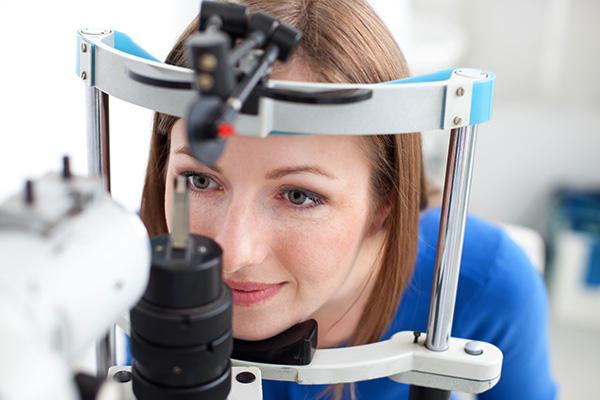
Your vision is essential, and the right contact lenses can make a significant difference in your daily life. In the world of eye care, there's a broad spectrum of contact lens options available. The challenge is to find the type that will meet your vision needs and fit comfortably into your lifestyle.
Understanding Your Vision Needs
Your vision needs and conditions are the foundation of choosing the right contact lenses. Understanding them is crucial because they directly affect the type of lenses that will work best for you. The most common vision conditions include nearsightedness, farsightedness, astigmatism, and presbyopia.
Nearsightedness, or myopia, is a condition where you see close objects clearly, but distant objects are blurry. Farsightedness, or hyperopia, is the opposite. Astigmatism results in blurred vision at all distances and is caused by an irregularly shaped cornea or lens. Presbyopia is an age-related condition that makes it difficult to focus on close objects.
Each of these conditions requires a different type of lens. For example, if you have astigmatism, you'll need toric lenses, which are designed to correct the irregular curvature of your eye. If you have presbyopia, you may benefit from multifocal lenses that can help you see at various distances.
Different Types of Contact Lenses
With a clear understanding of your vision needs and conditions, you can now delve into the different types of contact lenses. There are two primary types: soft lenses and rigid gas permeable (RGP) lenses. Each has its benefits and drawbacks, and the choice often comes down to personal preference and lifestyle requirements.
Soft lenses are made from flexible plastics that allow oxygen to pass through to the cornea. They are comfortable to wear and easier to adjust to than RGP lenses. Soft lenses come in various types, including daily disposable, extended wear, and toric lenses.
Rigid Gas Permeable lenses, on the other hand, are more durable and resistant to deposit buildup. They tend to be less expensive over time because they last longer than soft lenses. RGP lenses offer clear, crisp vision and are often recommended for certain vision conditions like astigmatism or keratoconus.
How Lifestyle Influences Your Contact Lens Choice
Your lifestyle is a significant factor in determining the best contact lenses for you. If you're an athlete or enjoy outdoor activities, daily disposables are a great option since you can discard them at the end of the day, reducing the risk of eye infection.
On the other hand, if you work in a dusty environment or spend a lot of time in air-conditioned or heated rooms, these conditions could cause your lenses to dry out. In such cases, you might need lenses designed for dry eyes or ones that retain moisture better.
Your lifestyle doesn't only influence the type of contact lenses you choose but also how you use them. For instance, extended wear lenses could be a great fit if you travel frequently or have long working hours.
Lastly, consider your willingness to care for your lenses. Some types require a rigorous cleaning routine, while others are disposable and require little to no care. Your optometrist can help you understand these factors and guide you in choosing contact lenses that align with your needs and lifestyle.
The Role of an Optometrist in Determining the Best Contact Lenses
While understanding your vision needs and lifestyle is essential, the role of an optometrist in determining the best contact lenses for you cannot be overstated. An optometrist is trained to assess your eye health, determine your prescription, and recommend the best types of lenses based on your specific needs.
During an eye exam, your optometrist will ask about your lifestyle, work environment, and any vision problems you've experienced. They'll also assess the health of your eyes and measure them to ensure a proper fit for your lenses.
The optometrist's expertise and advice are invaluable in choosing contact lenses. They will guide you through the process, helping you understand the benefits and drawbacks of different lens types, and provide instructions on proper care and usage.
Conclusion
Choosing contact lenses is a decision that requires careful consideration. By understanding your vision needs and conditions, exploring the different types of lenses, considering your lifestyle, and seeking the advice of an optometrist, you can find the best contact lenses for you.
If you're ready to make the switch to contact lenses or need more guidance, schedule an eye exam with our optometrist today. Visit Synoptic Eye Care at our office in Fort Lauderdale, Florida. Call (954) 999-5592 to book an appointment today.




